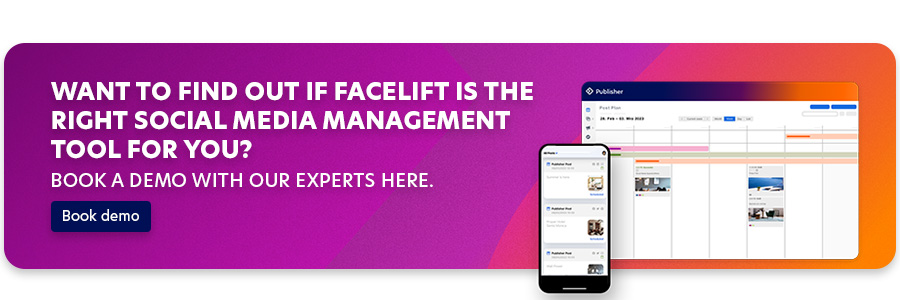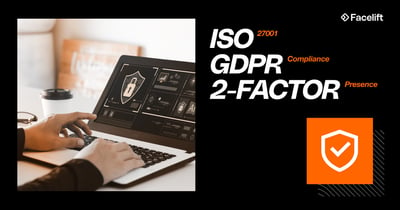The complexity of managing social media platforms has only escalated in recent years as user demand drives innovation and competition between companies. Keeping up with this is especially important for agencies tasked with handling multiple clients across various industries.
This means there needs to be a more capable but efficient process that involves scheduling posts and conducting a harmonious strategy that amplifies customers' brand voices, engages audiences, and drives measurable outcomes.
For PR, marketing, or social media agencies, mastering social media orchestration on behalf of clients becomes a pivotal element in delivering value to their clients.
Understanding social media orchestration
Social media orchestration goes beyond traditional management practices by integrating strategic planning, content creation, community engagement, and analytics into a cohesive workflow. This approach ensures that every social media activity is aligned with the client's overarching business goals.
For agencies, this means deploying a team of specialists who can seamlessly collaborate across different facets of social media management to produce a symphony of impactful content.
The pillars of effective orchestration for agencies
- Strategic alignment: Every social media effort should be rooted in a strategy that supports the client's business objectives, whether it's brand awareness, lead generation, or customer loyalty.
- Content excellence: Crafting compelling, high-quality content that resonates with the target audience is crucial. This involves a deep understanding of the client's brand voice and the interests of their audience.
- Engagement and community building: Actively engaging with followers and building a community around the brand fosters trust and loyalty, essential components of a successful social media presence.
- Performance analysis: Continuously analyzing performance data allows agencies to refine their strategies, making informed decisions to enhance engagement and ROI.
Technology in social media orchestration
Leveraging the right tools is essential for optimizing social media management for agencies. Agencies should invest in a comprehensive platform that offers features like scheduling, analytics, engagement tracking, and collaboration tools. This enables teams to work more efficiently, automate repetitive tasks, and focus on strategy and creativity rather than micromanagement.
Choosing the right platforms
When selecting a social media management tool, agencies should consider factors such as:
- the ability to schedule and plan content across multiple platforms for multiple clients,
- how to keep community management between pages and/or customers separate and only visible to individual clients' project managers.
- the richness of analytical capabilities that can be reported to the client
- the ease of collaboration among team members, including user rights and responsibilities
Best practices for social media orchestration for agencies
1. AI-driven content optimization
Integrating AI and machine learning streamlines content scheduling and fine-tunes messaging and visuals based on audience engagement patterns. This technology plays a crucial role in orchestrating dynamically optimized content, ensuring that every post is tailored for maximum impact.
AI can also make content recommendations and help build a text framework. We don't yet advise simply copying and pasting whatever your AI assistant creates, but it's an excellent time-saving tool for inspiration!
2. Agile content development
Adopting an agile approach enables agencies to iterate and rapidly evolve their social media strategies on a customer-by-customer basis. This flexibility is critical to effective orchestration, allowing teams to pivot based on real-time analytics and feedback, focusing on delivering content that genuinely meets the needs of their [customers'] diverse audiences.
3. Advanced social listening
Social listening tools enhance the orchestration process by providing insights into audience conversations and trends. This proactive engagement informs content creation and strategy adjustments, enabling agencies to position their clients as active participants in relevant discussions. For the finest tool in social listening, check out Digimind.
4. Personalized audience experiences
Personalization at scale is made possible through data analytics! Utilizing data helps agencies craft unique experiences for different audience segments, even within a specific customer's target audience. In the context of social media orchestration, this means delivering content that resonates with followers on a personal level, thereby deepening engagement and loyalty.
5. Collaborative influencer partnerships
Strategic influencer collaborations can amplify content reach and authenticity. Within an orchestrated campaign, influencers can introduce creative content elements and engage their followers uniquely, enhancing the overall strategy with their credibility and reach.
6. Real-time marketing for micro-moments
Capitalize on micro-moments by preparing to engage audiences with timely content.
Micro-moments occur when individuals instinctively use a device, usually a smartphone, to fulfill an immediate need, whether to gain knowledge, perform a task, explore, enjoy content, or purchase. These moments are pivotal interactions in the modern buying process, presenting chances for brands to influence choices and inclinations by delivering timely and relevant information, such as ads.
This approach requires a nimble orchestration process that can quickly leverage trending topics or events, keeping the brand relevant and top of mind.
7. Cross-platform storytelling
Orchestrating the continuity of a brand narrative across multiple platforms ensures a unified message while tapping into each channel's unique strengths and audiences, whether they are social media, another form of content, or both. This strategy enhances coherence and engagement, as content is specifically tailored yet still part of a larger, interconnected story.
8. Collaboration with your customers!
Last but definitely not least, the power of collaboration is magnified with social media orchestration. Facelift helps not only with your internal collaboration, but thanks to an unlimited number of users, you can even invite your customers' marketing managers or other personnel to view and monitor their content directly in the platform!
This collaboration will streamline the creation to the publishing process and even let them see in real-time how the community management plays out.
Conclusion
More than any other type of company, agencies carry the weight of their clients' followings on their shoulders. If your agency manages many clients, you may be buried beneath a mountain of profiles, accounts, and editorials.
Most successful agencies equip themselves with a robust orchestration strategy that helps them stand above competitors, delivering impactful, measurable results for their clients. Facelift helps your agency make this strategy actionable across any number of accounts, regardless of the size of your teams.
Whether operating five social media accounts or five hundred (and some of our customers have far more), you can take advantage of Facelift's comprehensive analytical, scheduling, and community management capabilities.
Contact our product experts for a short Facelift demo and discover how our holistic software can improve social media orchestration at your agency.

-1.jpg)




